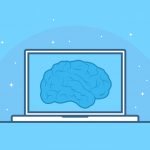I’m a big fan of playing with data.
In my earlier corporate life, I often used Excel to look through thousands of lines of spreadsheet goodness. I assumed what I was doing was “big data”, and I prided myself on my association with a trendy buzzword.
I know better now. A lot better.
If you’ve ventured here, you’re probably looking into data science, the mysterious science that seems to verge on mysticism in the press. The virtues of data are constantly praised as innovative and disruptive. They seem like the domain of an exclusive few practitioners lifting numbers into actionable insight.
Harvard Business Review went as far as to saying that the data scientist was the sexiest job of the 21st century.
It seems that data scientists create many of the most exciting projects at the cutting-edge of technology. The people you may know on LinkedIn appear thanks to data mining. Amazon’s book recommendations rely on computers to mine your book preferences and select the one book that is most likely to appeal to you. Facebook finds what posts you like, and serves you more of the same. Google finds out who you are, and filters search results and ads for you.
If I like computers, the search term Python will return me the programming language. If I like snakes, it will return me a whole bunch of snakes.
This is all down to the magic of data mining. You’re here because you want to look behind the veil and learn how to do all this.
It’s hard, but not as hard as you think. Data science, at its’ core, is all about using computing power to parse through huge data sets.
Here are nine free, brilliant resources to do just that.
1- Coursera’s Specialization in Data Mining (level: beginner)
https://www.coursera.org/specialization/datamining/20
Coursera brings the best from the University of Illinois at Urbana-Champaign, ranked in the top 5 for computer science schools in America. It’s a useful introduction to data mining–the application of data science and computing power to find patterns in large collections of data.
2- A UCLA professor’s overview of data mining (level: beginner)
http://www.anderson.ucla.edu/faculty/jason.frand/teacher/technologies/palace/datamining.htm
This blogpost delves deep into the specifics of data mining. It provides an overview and a set of definitions that will help bring you up to scratch.
3-Introduction to R (level: beginner)
https://www.codeschool.com/courses/try-r
The coding language R is the workhorse of scientific data analysis and visualization. Codeschool offers an interactive and gamified approach to learn it, similar to Codecademy. Working with R will give you insight into how to move and dance with digital data, a skill that is the foundation of data science.
4- Kaggle’s Wiki on Python (level: beginner)
https://www.kaggle.com/wiki/GettingStartedWithPythonForDataScience
Kaggle is a platform for crowdsourced data challenges. The website has a ton of resources on how to get started with data science. This particular link leads to their guide on Python, one of the most versatile programming languages for data analysis.
5- Data Science 101 (level: beginner)
http://101.datascience.community/
This blog knows how to describe itself: “Data Science 101 is about learning to become a data scientist.” Simple, clear and to the point.
6- W3’s Tutorial on SQL (level: beginner)
W3 hosts a bunch of interactive tutorials on the basics of programming. This set of tutorials goes through SQL, a language that allows you to access data from most web databases. The tutorials will give you a glimpse into how data is structured for many websites and they will give you enough knowledge so that you would know how to play with data.
7-Horton’s Hadoop Sandbox (level: intermediate)
http://hortonworks.com/products/hortonworks-sandbox/
Have you ever wanted to play with big data? Learn the basics here and experiment with them. Hadoop helps distribute data across multiple servers, helping to process large amounts of data as seemlessly as possible.
8- Machine Learning on Coursera with Andrew Ng (level: intermediate)
https://www.coursera.org/course/ml
Learn about data mining and the algorithms you can create to make your data analysis job so much easier from a master in the field: the founder of Coursera Andrew Ng, a Stanford professor who has recently become Baidu’s chief scientist.
9- A Programmer’s Guide to Data Mining (level: advanced)
If you can work with Python at a proficient level, this book will help you implement different algorithms that will sort, filter, and manipulate your data for you. A must-read for people looking into the practical applications of data mining.
I hoped that helped get you set on the path to data mining. What resources do you think I’m missing? Comment below. 🙂








